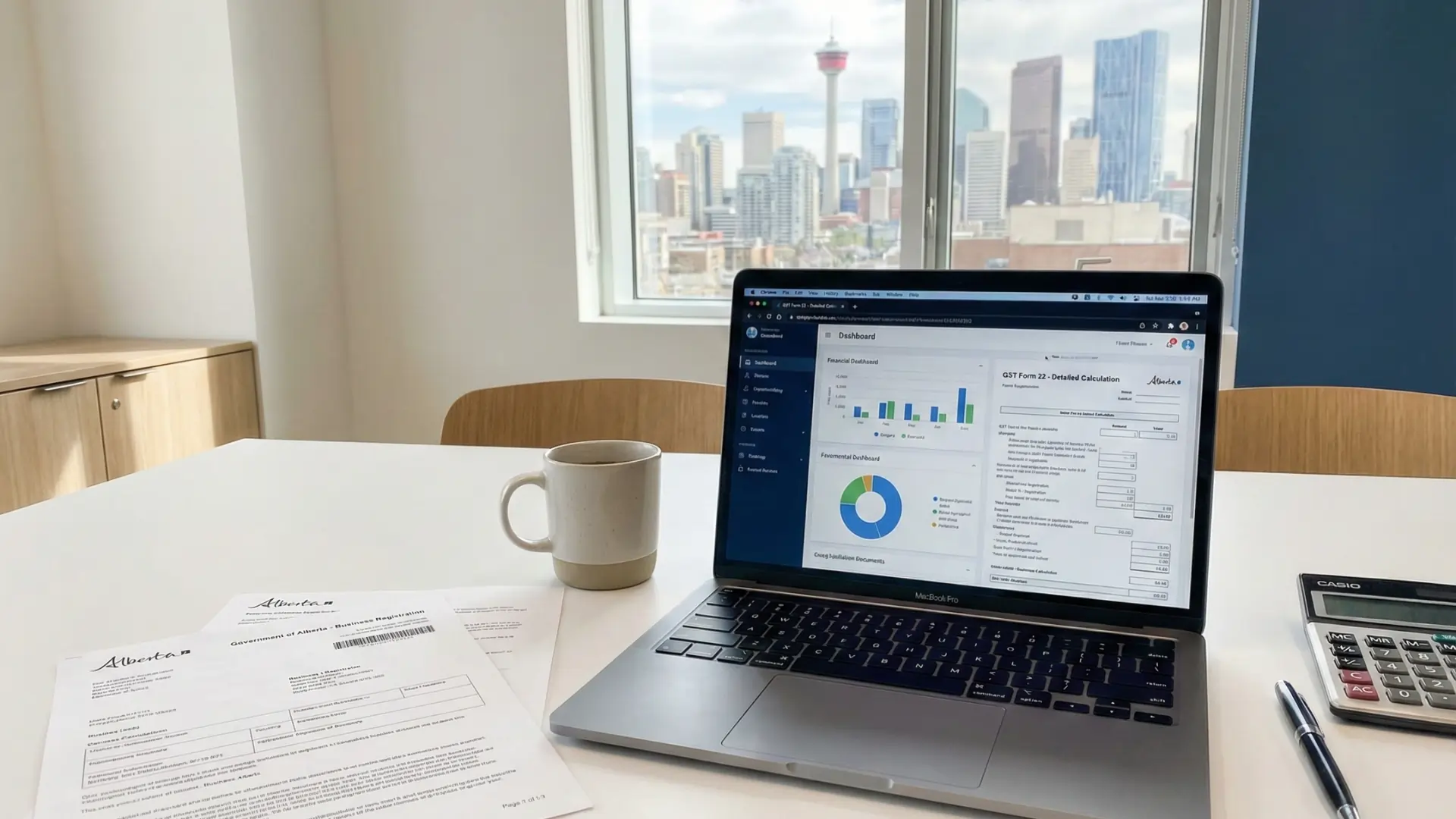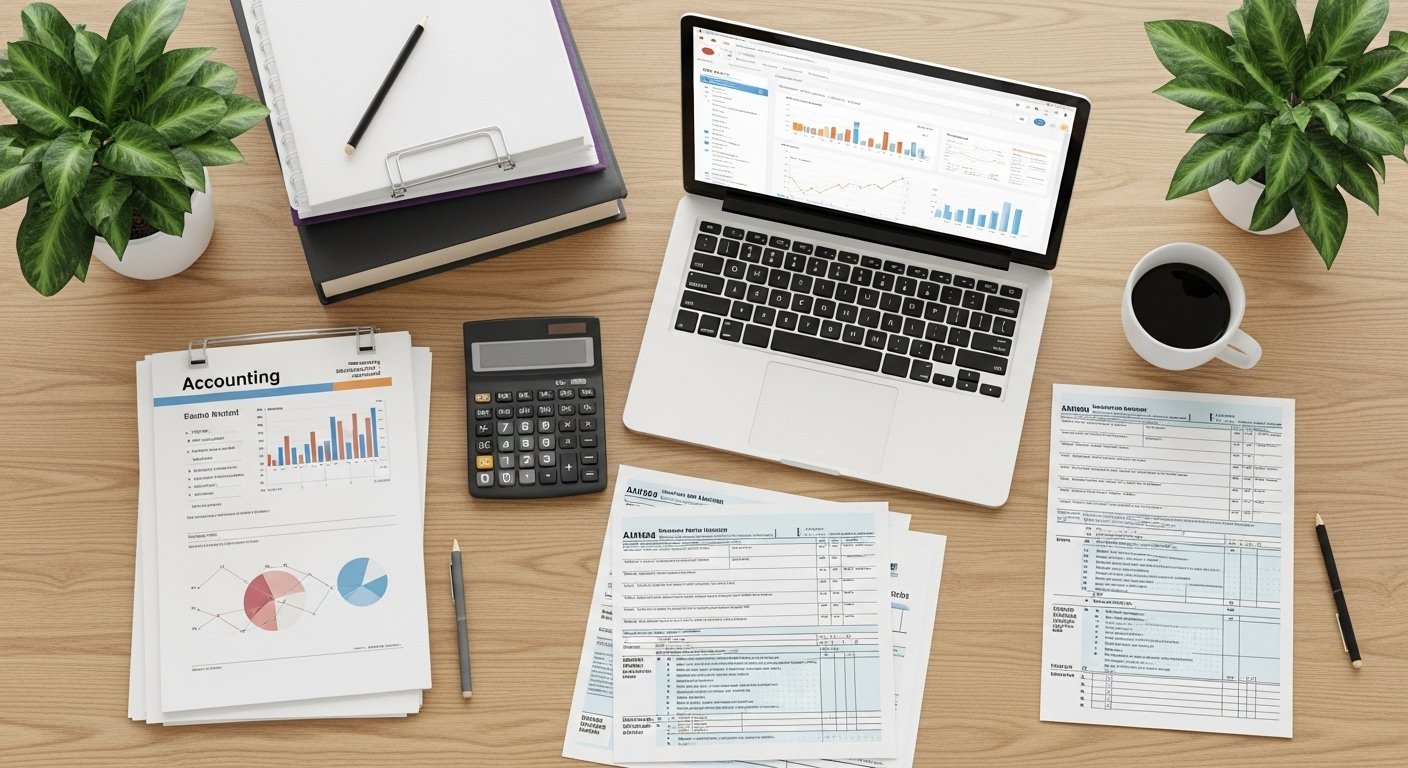Running a small business is challenging. Between managing customers, inventory, employees, and daily operations, the financial side can easily get messy. Keeping track of receipts, taxes, and cash flow adds up quickly. But if you build a few good accounting habits early, you can avoid surprises and stress later. Here are five smart accounting habits every Calgary business owner should know.
1. Record Income and Expenses Every Week
Don’t wait until month-end or year-end to update your books. Set aside just 30 minutes each week to enter your sales, bills, and receipts into your accounting system. This simple habit keeps you informed about where your business stands financially at all times.
When you record transactions weekly, you catch errors early. You’ll notice if a payment didn’t go through or if you were charged twice for something. Plus, when tax time rolls around, you won’t be scrambling to find months of missing information. Your accountant will thank you, and you’ll save money on bookkeeping fees.
Many Calgary business owners use cloud-based software to make this process easier. Whether you’re tracking income from client invoices or expenses from supplier payments, staying current means you always have an accurate picture of your cash flow. This helps you make better business decisions throughout the year.
2. Keep Digital Copies of All Receipts
Use your phone to scan every single business receipt—meals, supplies, equipment, travel, office expenses, everything. Store them in a dedicated folder on your computer or use cloud-based storage software. The CRA expects proof of your business expenses, and paper receipts fade, get lost, or damaged over time.
Digital receipt management protects you during a CRA audit or review. If the tax authorities ask you to prove a deduction from three years ago, you’ll have it ready. Without proper documentation, you could lose valuable tax deductions and face penalties.
Many accounting apps now let you photograph receipts right from your phone and automatically categorize them. This takes seconds and saves hours during tax season. Make it a habit to scan receipts the same day you get them—before they end up crumpled in your pocket or lost in a drawer.
3. Separate Business and Personal Finances
One of the biggest mistakes new business owners make is mixing personal and business expenses. Open a dedicated business bank account and get a separate credit card for all business purchases. This clear separation makes your bookkeeping cleaner and protects you legally.
When your finances are separated, you don’t have to sort through mixed transactions later trying to remember which coffee was a client meeting and which was just your morning routine. Your bookkeeping services provider can work much faster when everything is already organized.
Separate accounts also make it easier to track business performance. You can quickly see how much revenue is coming in and what your true business expenses are. This separation is especially important if you’re incorporated, as the CRA expects clear boundaries between corporate and personal finances.
4. Review Your Books Monthly
Once a month, take time to look at your profit and loss statement and balance sheet. Check that your bank statements match your recorded transactions. If something doesn’t add up, investigate it right away. A small mismatch is much easier to resolve than discovering a big problem six months later.
Monthly reviews help you spot trends. Are your expenses creeping up? Is revenue seasonal? Are certain products or services more profitable than others? This information helps you make smarter decisions about pricing, staffing, and growth.
If you’re not comfortable reviewing financial statements yourself, work with a professional who can explain what the numbers mean. Vision Accounting specializes in helping Calgary business owners understand their financials, not just filing paperwork. Regular monthly check-ins with your accountant keep you informed and prepared for both opportunities and challenges.
5. Plan for Tax Payments and Deadlines
In Canada, taxes aren’t just an annual event. Depending on your business structure, you might need to handle GST/HST remittances, payroll source deductions, quarterly installment payments, and corporate tax returns. Each has its own deadline, and missing them leads to penalties and interest charges.
Use a calendar system to track all your tax deadlines. Set reminders two weeks before each due date so you have time to gather information and make payments. Better yet, work with an accounting firm that tracks these deadlines for you and reminds you in advance.
Many Calgary businesses use payroll services to ensure employee remittances are always on time. If you’re incorporated, your T2 corporate tax return must be filed even if your business didn’t make money that year. Professional support ensures you never miss a deadline and helps you plan for the actual cash you’ll need to pay taxes throughout the year.
Why These Habits Matter in Calgary
Calgary’s business environment is competitive and fast-moving. Many local accounting firms emphasize helping small businesses maintain financial health throughout the year, not just at tax time. The right accounting partner helps you stay organized, compliant, and strategic.
When you build strong accounting habits now, you position your business for growth. Clean books make it easier to apply for financing, attract investors, or sell your business down the road. You’ll also stand out if you decide to work with a CPA or accounting partner—they can focus on strategy and tax planning instead of fixing messes.
Whether you’re in trades, trucking, food service, consulting, or retail, these five habits form the foundation of smart financial management. Start with one or two habits this month and build from there. Small changes in how you handle your books today can save you thousands of dollars and countless headaches tomorrow.
Getting Professional Support
If managing your books feels overwhelming, you’re not alone. Many Calgary business owners choose to work with professional accounting firms that offer bookkeeping services, tax filing, and CRA audit support. The right partner takes the stress off your plate so you can focus on what you do best—running your business.
Good accounting habits combined with professional support create a powerful combination. You stay informed and in control while experts handle the technical details and ensure you remain CRA-compliant. This approach gives you confidence in your numbers and peace of mind about your financial future.
Start building these habits today. Your future self will thank you when tax season arrives, when you need to make a big business decision, or when the CRA comes calling. Smart accounting isn’t about being perfect—it’s about being prepared, organized, and proactive with your business finances.






